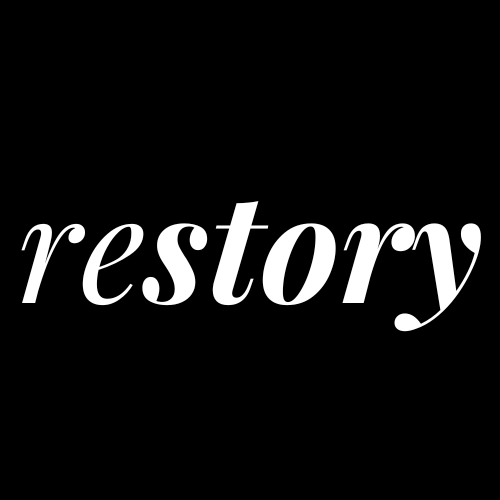This post is an excerpt from Building the Christian Family You Never Had from chapter 7, Honoring Your Parents.
The Texas Ten Commandments are painted on the wall of an East Texas church. Number five reads, “Honor yer Ma and Pa.” It’s a simplified version of the actual commandment, but obeying it is not so simple. As pioneer parents we long to honor parents who may have dishonored us and we want to instill honor in our own children.
This chapter comes after the leave and cleave chapter for a distinct reason. We must first leave our family of origin and cleave to our new families. Leaving, then, is not the antithesis of honor. Somehow interwoven is the notion that leaving and honor can happen simultaneously.
I’ve struggled with the idea of honor ever since I breathed my first prayer to Jesus. How do I honor parents who dishonored me? How do I love and hold in high regard people who have no regard for Jesus?
The Jewish Concept of Honor
The Old Testament is replete with the admonition to honor our parents. Those who ridiculed and held their parents in contempt were given strict punishment—even death. Honor is a core biblical concept. But what does it mean? The Hebrew word for honor is kabbed, the verb found in the fifth commandment. The word means to be heavy or weighty, to give weight to, to assign importance to, to be honored. It is tied to a parent’s position, not their personality. We are to give weight to the honorable position of our parents. “Both the Greek and the Hebrew carried the sense of honoring people because of the position they held, not necessarily because of their intrinsic value.”[i]
Ben-Sira, a Jewish rabbi who wrote commentary on the Old Testament, said this about honoring the position of our parents: “Honor your father with all your heart, and do not forget the mother who created you. Remember that you came from them—and what can you give like that which they have given you?”[ii] The idea is one of kind retribution. Our parents gave us life; therefore they are due our honor. Jewish historian Philo (a contemporary of Josephus) expands this idea. “Philo urges children of all ages to see themselves as the ‘repayers of a due,’ who are to honor, respect, fear, and obey those who gave them life, and to care for parents in their old age as they themselves were cared for in their youth. To fail in doing so is not only a breach of human trust, but also an affront to God, ‘for parents are the servant of God for the task of begetting children, and he who dishonors the servant dishonors also the Lord.’”[iii]
Honor, then, is an attitude of graciousness and thankfulness toward our parents for the role they’ve played in our lives. Regardless of what they have done or didn’t do, God chose them to be our parents. Because of that position, they are due our honor. We should be courteous and kind in our dealings with our parents. In addition there is strong evidence that part of honor is taking care of our parents when they become infirm or aged. Even Jesus calls the Pharisees hypocritical for acting religious while neglecting their parents. “And why do you break the command of God for the sake of your tradition? For God said, ‘Honor your father and mother’ and ‘anyone who curses his father and mother must be put to death.’ But you say that if a man says to his father or mother ‘Whatever help you might otherwise have received from me is a gift devoted to God,’ he is not to ‘honor his father’ with it. Thus you nullify the word of God for the sake of your tradition. You hypocrites!” (Matthew 15:3-7a).
What does Jewish tradition allow for in terms of parents who were ungodly? In rabbinic literature, this is called the “problem of the wicked father.” The Talmud doesn’t allow for youths to simply declare, “I have the problem of the wicked father, so now I can dishonor him.” Even when a father or mother is “wicked,” a child still must honor. “Thus, even when a father must be corrected by his son, there is no slackening of the respect owed the father by the son; the son must be meticulously careful not to pain his parent by condescending or arrogant instruction.”[iv]
If, however, a parent tells us to do something contrary to God’s law, we are to obey God first. “We recall that the reverence and service owed a father is superseded by the reverence and obedience owed by both father and son to God: the father who demands immoral or impious behavior of his son is to be disobeyed.”[v] Our primary responsibility is to honor God; if our parents instruct us to act in ways contrary to God’s word, then it is our responsibility to honor God first.
[i] Stoop, Dr. David and Dr. James Masteller, Forgiving Our Parents Forgiving Ourselves: Healing Adult Children of Dysfunctional Families. Ann Arbor, MI: Servant Publications, 1996, p. 290.
[ii] Blidstein, Gerald, Honor Thy Father and Mother: Filial Responsibility in Jewish Law and Ethics. New York, NY: Ktav Publishing House, Inc., 1976, P. 11.
[iii] Cohen, Shaye J. D., ed. The Jewish Family in Antiquity. Providence, RI: Brown University, 1993, p. 81.
[iv] Blidstein, p. 131.
[v] Ibid.

0 Comments